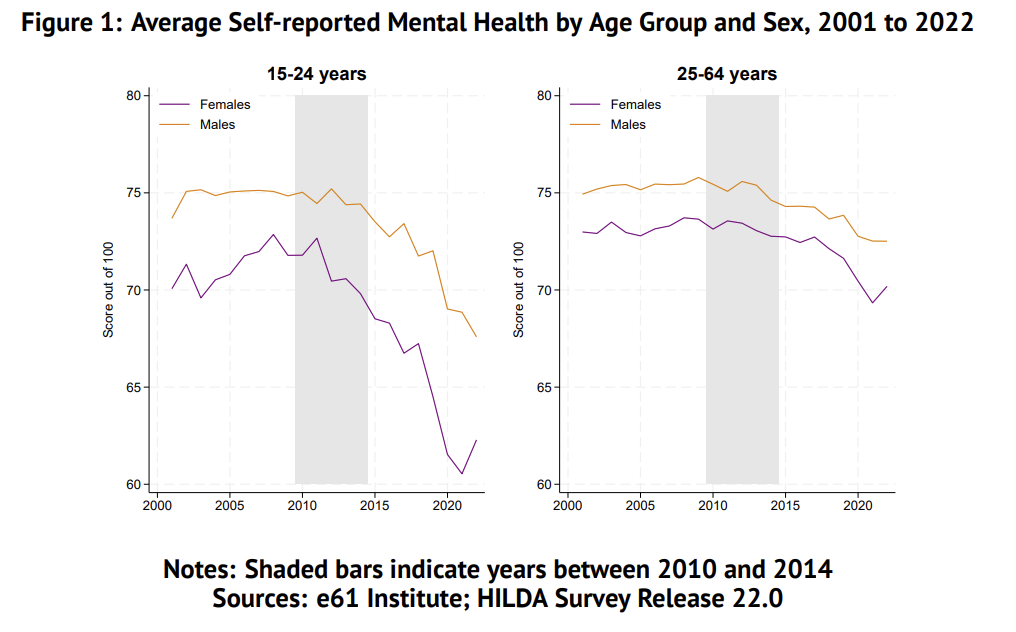Gen Z’s falling mental health again linked to social media use
With their attention-mining algorithms and ability to amplify the worst aspects of human nature, social media platforms are increasingly being singled out as the root of the problem when it comes to declining mental health.
The US Surgeon General went so far last month as to call for warnings to be attached to social media platforms, in the same way that the US Surgeon General in the 1960s was successful in convincing the US Government to order tobacco companies to put health warnings on cigarette packets.
Now an Australian economic research group, the e61 Institute has drawn a link between declining mental health in Australia and the rise of social media and photo and video-sharing platforms. According to the Household, Income, Labour Dynamics in Australia (HILDA) Survey, average “self-reported” mental health has been falling in Australia since the early 2010s for women and girls aged 15 to 24, with a more gradual decline taking place for their male counterparts.
“Women and girls born since the late 1990s report much lower levels of both mental health and friendship connections than others,” e61 Institute notes.
At the same time, Women and girls aged 15 to 24 report the highest shares of using social media and doing so at least on most days.
“The decline in self-reported mental health since the early 2010s is strongly linked to when an individual was born and how lonely they feel. Our research suggests that social media exposure may be linked to lower mental health based on three observations in the household survey data,” the researchers add.
The data would appear to suggest that the self-reported mental health of young women started to decline as social media platforms like Instagram, Facebook and Snapchat became widely available.
The researchers were making a submission to the Australian Parliament’s Joint Select Committee on Social Media and Australian Society, which is considering the implications of social media on Australian society, including Meta’s decision to withdraw from the News Bargaining Code which saw it pay media companies for the right to carry snippets of their content on its platforms.
The New Zealand Government said this week that it will progress with an amended news bargaining bill here, which will seek to require Big Tech companies to negotiate with local publishers in a similar way.
The e61 researchers stress that correlation doesn’t equal causation and that more research needs to be done based on more extensive sets of data.
What data would help illuminate the issue?
“The ideal dataset would integrate individual level mobile phone usage data with confidential medical, social security and tax records in the Person-level Integrated Data Asset (PLIDA) maintained by the Australian Bureau of Statistics (ABS). The next best alternatives would be to include new questions on social media use for specific platforms in the HILDA Survey or the ABS’ National Study of Mental Health and Wellbeing,” the researchers suggest.


